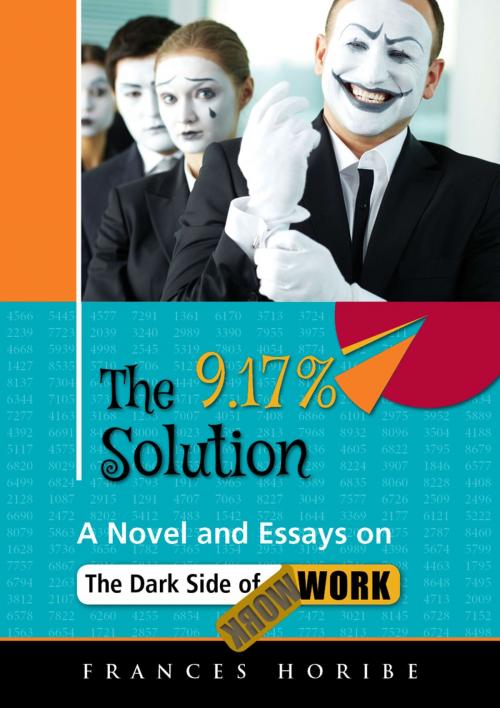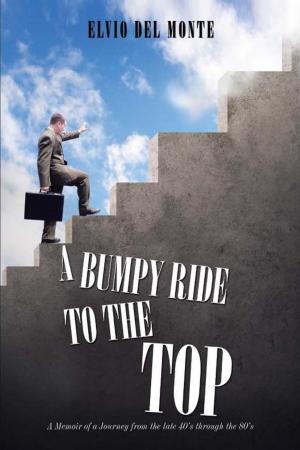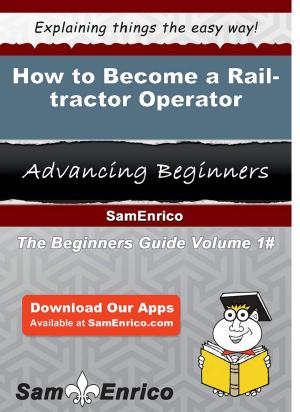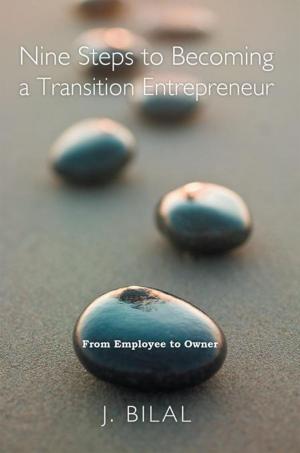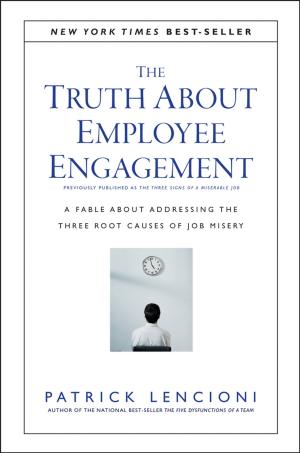The 9.17% solution:
Inside the dark side of work
Business & Finance, Business Reference, Business Ethics, Career Planning & Job Hunting, Careers| Author: | Frances Horibe | ISBN: | 9780994929020 |
| Publisher: | VisionArts Inc. | Publication: | April 7, 2016 |
| Imprint: | VisionArts Inc. | Language: | English |
| Author: | Frances Horibe |
| ISBN: | 9780994929020 |
| Publisher: | VisionArts Inc. |
| Publication: | April 7, 2016 |
| Imprint: | VisionArts Inc. |
| Language: | English |
BOTH A NOVEL AND A BUSINESS BOOK
This book has two parts.
The first is a novel set in the company Summit, a very large consulting firm trying to recover from a devastating and very public scandal. It has become a pariah, the new tobacco. The best people have fled and it draws in those who are looking to cash in on its weakened state. With few qualifications and fewer morals, Jamie wrangles his way in, aiming for the top with as little work and as much manipulation as possible. Along the way he betrays his boss, parlays a rumor of another scandal into a job as the President's assistant, tries to blackmail a Vice-president for a cut of the scam, and eventually is defeated, almost incidentally, by a President who is using him as a pawn in her bigger game of power and control.
Jamie's narrative is one of five overlapping stories of people in the company, all of which illustrate the emotional and sometimes disturbing dynamics in organizations when ego, trade-offs, personal preferences, and values come into conflict.
The second part are management essays discussing the organizational undercurrent illustrated by each narrative. Much of what really drives organizations—the need for power, the need for control, the fear of taking a risk—are below the surface undercurrents. Unacknowledged, even denied, but nevertheless with a powerful ability to determine the direction of and even pull under the unsuspecting. Each essay challenges the reader to put him/herself in the place of the characters and come to grips with them.
'I'm not sure how often one can say that a business book is a fun read, but this one surely is. Combining fiction and non-fiction, and drawing on history, personal experience and research literature, Ms. Horibe has leavened the mix with drole humour to produce a book that is cogent, insightful, and right on the money for the times in which we are living.'
Marcia Clement
Senior Executive (ret.)
Government of Canada
'These are all issues we wish would go away so we don't have to deal with them. And depending on where you are in the organizational hierarchy, it will be easier to pretend they don't exist or to explain them away. Frances first uses the familiar medium of soap-opera-type dramatization in a novel format to expose them, and then uses an in-your-face essay style to analyze and explore their implications. It was refreshing to see words put around the unspeakable but then Frances confronts us to face up to who really has the power in today's organizations.'
Rod Brandvold
Vice-President (ret.), Talent Management
Canadian Blood Services
'The heart of this book is a number of interconnected stories, each from the perspective of a different person in the same organization—this works very well in drawing out issues and perhaps, most importantly, allowing emotional aspects their full weight as in real life. The short essays that follow enable the author to address the lessons from the stories and to explore what can be done about them. Even when I disagreed with some of the arguments, I found myself many days later still thinking about them.'
John Edwards
Former Commissioner
Correctional Service of Canada
'Like nothing I've ever read before. The novel part sucks you in via curiosity or caring—and then—like a season ending TV show—leaves you hanging with anticipation, curiosity and a dab of frustration. WHO would have thought it existed—a literary book on management theory! It teaches by stealth—as it captures you first with its compelling story line, 3-D character development, and dare I say it—mystery.'
Ed DiZazzo
EAP counsellor/executive career coach
'The essays provoked thought. It leads the reader to reflect on his/her own situation. You see parallels. You see yourself or others you work with. I made me wonder how often I rode a current versus trying to change or alter it. In my case, I think early on in my career, I learned to read then ride the currents, whereas now I try to cha
This book has two parts.
The first is a novel set in the company Summit, a very large consulting firm trying to recover from a devastating and very public scandal. It has become a pariah, the new tobacco. The best people have fled and it draws in those who are looking to cash in on its weakened state. With few qualifications and fewer morals, Jamie wrangles his way in, aiming for the top with as little work and as much manipulation as possible. Along the way he betrays his boss, parlays a rumor of another scandal into a job as the President's assistant, tries to blackmail a Vice-president for a cut of the scam, and eventually is defeated, almost incidentally, by a President who is using him as a pawn in her bigger game of power and control.
Jamie's narrative is one of five overlapping stories of people in the company, all of which illustrate the emotional and sometimes disturbing dynamics in organizations when ego, trade-offs, personal preferences, and values come into conflict.
The second part are management essays discussing the organizational undercurrent illustrated by each narrative. Much of what really drives organizations—the need for power, the need for control, the fear of taking a risk—are below the surface undercurrents. Unacknowledged, even denied, but nevertheless with a powerful ability to determine the direction of and even pull under the unsuspecting. Each essay challenges the reader to put him/herself in the place of the characters and come to grips with them.
'I'm not sure how often one can say that a business book is a fun read, but this one surely is. Combining fiction and non-fiction, and drawing on history, personal experience and research literature, Ms. Horibe has leavened the mix with drole humour to produce a book that is cogent, insightful, and right on the money for the times in which we are living.'
Marcia Clement
Senior Executive (ret.)
Government of Canada
'These are all issues we wish would go away so we don't have to deal with them. And depending on where you are in the organizational hierarchy, it will be easier to pretend they don't exist or to explain them away. Frances first uses the familiar medium of soap-opera-type dramatization in a novel format to expose them, and then uses an in-your-face essay style to analyze and explore their implications. It was refreshing to see words put around the unspeakable but then Frances confronts us to face up to who really has the power in today's organizations.'
Rod Brandvold
Vice-President (ret.), Talent Management
Canadian Blood Services
'The heart of this book is a number of interconnected stories, each from the perspective of a different person in the same organization—this works very well in drawing out issues and perhaps, most importantly, allowing emotional aspects their full weight as in real life. The short essays that follow enable the author to address the lessons from the stories and to explore what can be done about them. Even when I disagreed with some of the arguments, I found myself many days later still thinking about them.'
John Edwards
Former Commissioner
Correctional Service of Canada
'Like nothing I've ever read before. The novel part sucks you in via curiosity or caring—and then—like a season ending TV show—leaves you hanging with anticipation, curiosity and a dab of frustration. WHO would have thought it existed—a literary book on management theory! It teaches by stealth—as it captures you first with its compelling story line, 3-D character development, and dare I say it—mystery.'
Ed DiZazzo
EAP counsellor/executive career coach
'The essays provoked thought. It leads the reader to reflect on his/her own situation. You see parallels. You see yourself or others you work with. I made me wonder how often I rode a current versus trying to change or alter it. In my case, I think early on in my career, I learned to read then ride the currents, whereas now I try to cha
BOTH A NOVEL AND A BUSINESS BOOK
This book has two parts.
The first is a novel set in the company Summit, a very large consulting firm trying to recover from a devastating and very public scandal. It has become a pariah, the new tobacco. The best people have fled and it draws in those who are looking to cash in on its weakened state. With few qualifications and fewer morals, Jamie wrangles his way in, aiming for the top with as little work and as much manipulation as possible. Along the way he betrays his boss, parlays a rumor of another scandal into a job as the President's assistant, tries to blackmail a Vice-president for a cut of the scam, and eventually is defeated, almost incidentally, by a President who is using him as a pawn in her bigger game of power and control.
Jamie's narrative is one of five overlapping stories of people in the company, all of which illustrate the emotional and sometimes disturbing dynamics in organizations when ego, trade-offs, personal preferences, and values come into conflict.
The second part are management essays discussing the organizational undercurrent illustrated by each narrative. Much of what really drives organizations—the need for power, the need for control, the fear of taking a risk—are below the surface undercurrents. Unacknowledged, even denied, but nevertheless with a powerful ability to determine the direction of and even pull under the unsuspecting. Each essay challenges the reader to put him/herself in the place of the characters and come to grips with them.
'I'm not sure how often one can say that a business book is a fun read, but this one surely is. Combining fiction and non-fiction, and drawing on history, personal experience and research literature, Ms. Horibe has leavened the mix with drole humour to produce a book that is cogent, insightful, and right on the money for the times in which we are living.'
Marcia Clement
Senior Executive (ret.)
Government of Canada
'These are all issues we wish would go away so we don't have to deal with them. And depending on where you are in the organizational hierarchy, it will be easier to pretend they don't exist or to explain them away. Frances first uses the familiar medium of soap-opera-type dramatization in a novel format to expose them, and then uses an in-your-face essay style to analyze and explore their implications. It was refreshing to see words put around the unspeakable but then Frances confronts us to face up to who really has the power in today's organizations.'
Rod Brandvold
Vice-President (ret.), Talent Management
Canadian Blood Services
'The heart of this book is a number of interconnected stories, each from the perspective of a different person in the same organization—this works very well in drawing out issues and perhaps, most importantly, allowing emotional aspects their full weight as in real life. The short essays that follow enable the author to address the lessons from the stories and to explore what can be done about them. Even when I disagreed with some of the arguments, I found myself many days later still thinking about them.'
John Edwards
Former Commissioner
Correctional Service of Canada
'Like nothing I've ever read before. The novel part sucks you in via curiosity or caring—and then—like a season ending TV show—leaves you hanging with anticipation, curiosity and a dab of frustration. WHO would have thought it existed—a literary book on management theory! It teaches by stealth—as it captures you first with its compelling story line, 3-D character development, and dare I say it—mystery.'
Ed DiZazzo
EAP counsellor/executive career coach
'The essays provoked thought. It leads the reader to reflect on his/her own situation. You see parallels. You see yourself or others you work with. I made me wonder how often I rode a current versus trying to change or alter it. In my case, I think early on in my career, I learned to read then ride the currents, whereas now I try to cha
This book has two parts.
The first is a novel set in the company Summit, a very large consulting firm trying to recover from a devastating and very public scandal. It has become a pariah, the new tobacco. The best people have fled and it draws in those who are looking to cash in on its weakened state. With few qualifications and fewer morals, Jamie wrangles his way in, aiming for the top with as little work and as much manipulation as possible. Along the way he betrays his boss, parlays a rumor of another scandal into a job as the President's assistant, tries to blackmail a Vice-president for a cut of the scam, and eventually is defeated, almost incidentally, by a President who is using him as a pawn in her bigger game of power and control.
Jamie's narrative is one of five overlapping stories of people in the company, all of which illustrate the emotional and sometimes disturbing dynamics in organizations when ego, trade-offs, personal preferences, and values come into conflict.
The second part are management essays discussing the organizational undercurrent illustrated by each narrative. Much of what really drives organizations—the need for power, the need for control, the fear of taking a risk—are below the surface undercurrents. Unacknowledged, even denied, but nevertheless with a powerful ability to determine the direction of and even pull under the unsuspecting. Each essay challenges the reader to put him/herself in the place of the characters and come to grips with them.
'I'm not sure how often one can say that a business book is a fun read, but this one surely is. Combining fiction and non-fiction, and drawing on history, personal experience and research literature, Ms. Horibe has leavened the mix with drole humour to produce a book that is cogent, insightful, and right on the money for the times in which we are living.'
Marcia Clement
Senior Executive (ret.)
Government of Canada
'These are all issues we wish would go away so we don't have to deal with them. And depending on where you are in the organizational hierarchy, it will be easier to pretend they don't exist or to explain them away. Frances first uses the familiar medium of soap-opera-type dramatization in a novel format to expose them, and then uses an in-your-face essay style to analyze and explore their implications. It was refreshing to see words put around the unspeakable but then Frances confronts us to face up to who really has the power in today's organizations.'
Rod Brandvold
Vice-President (ret.), Talent Management
Canadian Blood Services
'The heart of this book is a number of interconnected stories, each from the perspective of a different person in the same organization—this works very well in drawing out issues and perhaps, most importantly, allowing emotional aspects their full weight as in real life. The short essays that follow enable the author to address the lessons from the stories and to explore what can be done about them. Even when I disagreed with some of the arguments, I found myself many days later still thinking about them.'
John Edwards
Former Commissioner
Correctional Service of Canada
'Like nothing I've ever read before. The novel part sucks you in via curiosity or caring—and then—like a season ending TV show—leaves you hanging with anticipation, curiosity and a dab of frustration. WHO would have thought it existed—a literary book on management theory! It teaches by stealth—as it captures you first with its compelling story line, 3-D character development, and dare I say it—mystery.'
Ed DiZazzo
EAP counsellor/executive career coach
'The essays provoked thought. It leads the reader to reflect on his/her own situation. You see parallels. You see yourself or others you work with. I made me wonder how often I rode a current versus trying to change or alter it. In my case, I think early on in my career, I learned to read then ride the currents, whereas now I try to cha
